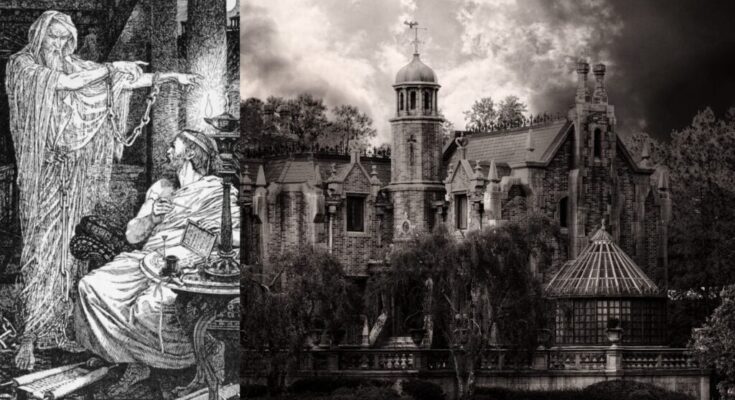
The tale of “The Haunting of Athenodorus” is one of the earliest recorded ghost stories, dating back to the early Roman years of ancient Greece.
This truly captivating story including spirits and apparitions was first documented by the Roman writer Pliny the Younger in his famous letters. The narrative offers us a spectacular first-hand glimpse into the world of the supernatural of ancient Greece and Rome, as well as the beliefs and superstitions surrounding the topic of ghost stories in ancient Greece and the later times of the Romans.
The story of Athenodorus is the first ghost story in ancient Greece
Athenodorus Cananites was a Stoic philosopher from the 1st century BC. He traveled to Athens where he went seeking a place to stay. During his house search, Athenodorus stumbled upon a very large but rather inexpensive house.
This disparity between size and price intrigued him. Athenodorus asked and found out that this house was rumoured to be haunted, thus the low asking price. Undeterred by the warnings of the locals who advised him not to stay there, Athenodorus decided to rent the property, intrigued by the mystery surrounding it.
On his first night in the house, Athenodorus settled down and decided it was a good time for him to write. He was determined to focus on his work despite the eerie atmosphere and the rumours circulating about the ghosts of this property.
As the night progressed, Athenodorus began to hear the distant sound of rattling chains, which grew louder and closer until it seemed to be right outside his door. What better start to a ghost story from ancient Greece, you might say.
Well, that might be true; however, imagine how Athenodorus may have felt on his very first night in that property. Intrigued and slightly scared by the creepy sounds, Athenodorus tried to figure out what was going on. This was the moment he turned to face the ghostly apparition of a really old man who was bound in chains and determined to follow Athenodorus into every room he went to.
Athenodorus, maintaining his composure and not giving way to fear, signalled for the ghost to wait and continued with his writing.
The story went on to become even more distressing, resembling more a modern horror movie rather that an innocent ghost story set in ancient Greece.
The ghost, growing impatient and annoyed by the house guest’s calm reaction, rattled its chains above the head of Athenodorus. This made Athenodorus realise that this figure, whatever it was, meant business. Therefore, he decided to follow it. The ghost led the philosopher to the courtyard, where it suddenly and without any warning vanished into thin air.
The next morning, perturbed by the events of the previous night, Athenodorus went to mark the spot where the ghost had disappeared and informed the local magistrates. The Athenian authorities decided to act on the information and upon excavating the area, they discovered the skeleton of a man bound in chains. The remains were then given a proper burial, and the ghost never appeared again.
The significance of the tale
This ancient ghost story focuses on several key components of Greek beliefs about the afterlife and the supernatural; beliefs that we still find rational to this day. The restless spirit of the old man in chains shows that ghost stories in ancient Greece and Rome were nothing more than tales about the spirits of those who died unjustly or were not given proper burial rites. The Greeks believed that these desperate souls could not find peace in the hereafter, something that many civilizations believe to this day.
The story also emphasises the need to remain reasonable in the face of fear and the unexpected, as seen by Athenodorus’ calm and systematic response to the haunting. In this fascinating ghost story of ancient Greece, we see the fundamentals of Stoic philosophy, which emphasises the importance of reason and emotional control over irrationality and fear.
Furthermore, the story shows the importance the ancient Greeks placed on their responsibility to honour the deceased and ensure that correct funeral traditions are always followed. By properly burying the skeleton, Athenodorus and the magistrates finally put the restless soul to rest, effectively ending the haunting.



